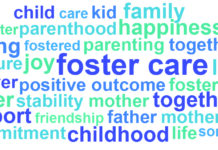- One in five survivors (21%) left unable to repay debt and 26% have a negatively impacted credit rating
- Survivors of economic abuse in debt will owe £3,272 on average – however one in four have debts in excess of £5,000
- The Co-operative Bank and Refuge’s “Know Economic Abuse” report calls for credit reference reform to avoid financial exclusion of economic abuse survivors
- Experian announce they are working closely with the campaign to improve access to credit reports, training and Victims of Fraud support to address the long-term burden on survivors
A large proportion of personal debt in the UK could be the direct result of economic abuse, according to a recent report by The Co-operative Bank and Refuge, the UK’s largest national domestic abuse charity.
On average, a survivor of domestic abuse who was left in debt will be indebted to the tune of £3,272 as a direct result of economic abuse perpetrated by a current or former partner. One in four will have debts in excess of £5,000 (24%). On average, women survivors of economic abuse were in significantly more debt than men survivors, with an average debt of £3,818 compared to £2,926. This means that approximately £14.4 billion in the UK can be attributed to some form of economic abuse.
The “Know Economic Abuse” campaign aims to raise awareness of the true scale of economic abuse in the UK. Economic abuse – sometimes called financial abuse – occurs when someone attempts to control another’s ability to acquire, maintain access to, or use money or other economic resources on a sustained basis. The study, previously conducted in 2015, expanded its research this year to look at the long-term financial impact of economic abuse on survivors.
The campaign has now partnered with leading credit reference agency Experian to raise awareness of financial coercion in the context of domestic abuse. Experian will work closely with the campaign with the aim of improving the process for survivors to inform lenders that debt was caused by economic abuse and aid lenders in reducing the long-term debt burden on survivors. This includes plans to improve access to credit reports, training and Victims of Fraud support to help clear of the financial mess left behind by an abusive partner.
How does economic abuse lead to long-term debt?
57% of those who had experienced economic abuse said that they were in or had been in debt as a result – this accounts for 4.7 million people.
This debt can develop in a number of ways due to the actions of perpetrators. People who experience economic abuse often see their partners make significant financial decisions, without discussing it with them, such as buying a new home or purchasing a new car (13%). Perpetrators will often also put debts in a partner’s name under duress (11%) or even do so fraudulently without their consent or awareness (10%). In some cases, these debts come with particularly high interest rates attached to them, such as ‘payday’ loans (9%) or overdrafts (9%).
While many people are aware of the illegality of an abuser opening accounts in their partner’s name without knowledge or consent , Experian has also clarified that in instances in which a survivor was coerced into opening an account, this can also be disputed as fraudulent.
Impact of long-term debt
One in four survivors find themselves struggling financially as a result of economic abuse (27%) and 21% will face debts that they are unable to repay. This was even higher for survivors who first experienced economic abuse during the Coronavirus pandemic, with 32% saying that they were struggling with debt and 31% saying that they could not afford basic living costs. In 40% of cases, it will take a survivor years to pay off the debt, if they are able to at all.
One in four survivors (26%) will end up with a negatively impacted credit rating as a result of economic abuse. This significantly impairs their ability to gain economic stability and make financial choices; in some cases it can create barriers for survivors who wanted to leave their abusive partner and live independently. For example, 45% said they had been unable to get a credit card and 32% said that they had only been able to access a credit card with a high interest rate. 30% said they had been unable to get a personal loan due to the impact of economic abuse on their credit rating. Almost a quarter had been unable to buy a home as a consequence of their damaged credit rating.
Maria Cearns, managing director, People & Customer, The Co-operative Bank, comments: “Something we have learned in our ongoing interactions with vulnerable customers who have suffered some form of economic abuse, is that the ramifications of abuse can continue to have a profound impact on someone’s financial wellbeing for years to come. It was a stark realisation for us that some of the survivors we polled five years ago as part of our original study would still be subject to long-term debt, damaged credit ratings and limited access to financial products and services, due to circumstances that were completely outside of their own control. Our findings have shown that long-term debt accrued as a result of economic abuse is significant and we will work diligently with Refuge and Experian on this.”
Lisa King, director of communications and external relations at Refuge, says: “Economic abuse is a huge issue facing women across the country and, as our report shows, can leave women struggling with debt for many years, with their ability to leave their abusive partner affected.
“The long term impacts of debt as a result of economic abuse should not be ignored – and action needs to be taken to ensure women are able to rebuild their financial stability and gain economic independence following abuse.
“Domestic abuse is not limited to physical violence and our report should be a wake-up call that action must be taken to address all forms of domestic abuse – there are simple steps that the banking and financial industry can take which will better protect women and we hope they will seize this opportunity to make the necessary changes.”
To view the full research report from Refuge and The Co-operative Bank visit: Click here
Spokespeople are available for comment and interviews; Experian quote also available; Case studies are also available on request.
Help keep news FREE for our readers
Supporting your local community newspaper/online news outlet is crucial now more than ever. If you believe in independent journalism, then consider making a valuable contribution by making a one-time or monthly donation. We operate in rural areas where providing unbiased news can be challenging. Read More About Supporting The West Wales Chronicle
























